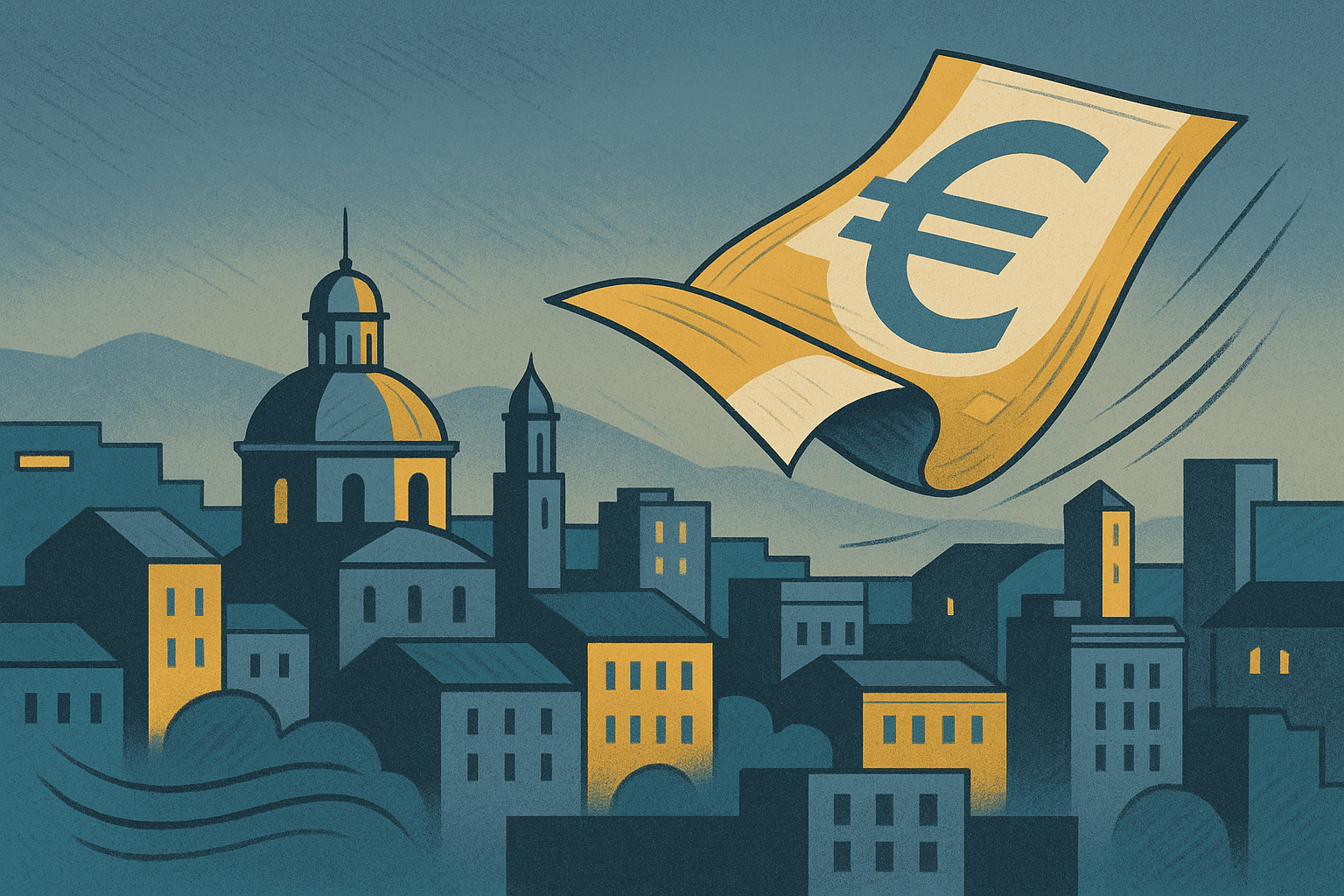EU finance ministers have formally approved Bulgaria’s accession to the eurozone, clearing the final legal hurdle for the country to adopt the single currency on 1 January 2026. The decision, agreed by the Economic and Financial Affairs Council (Ecofin) on 8 July, fixes the conversion rate at 1.95583 lev per euro — the same peg used since the introduction of Bulgaria’s currency board in 1999.
This move will see Bulgaria become the 21st member of the euro area, following a sequence of regulatory and political milestones over the past six weeks. The process began with positive convergence reports from both the European Commission and the European Central Bank, confirming Bulgaria’s compliance with the Maastricht criteria on inflation, fiscal balance, and debt.
Bulgaria passed the required economic benchmarks: its 12-month average inflation, measured by HICP, stood at 2.7% in April 2025 — below the reference value of 2.8%. The country’s fiscal deficit is forecast at 3.0% of GDP in 2024 and 2.8% in 2025, while public debt remains low at 24.1% of GDP, far beneath the eurozone’s 60% ceiling.
All retail prices and contracts in Bulgaria will be displayed in both lev and euro from 8 August 2025, as part of a dual-pricing requirement that will remain in place until the end of 2026. “Ensuring price transparency and combating abusive price increases will require a special effort,” said Valdis Dombrovskis, EU Commissioner for the Economy. Price monitoring teams will be tasked with enforcing the rules, and a consumer hotline is planned to address public concerns about price-rounding and inflation during the transition.
Euro banknotes and coins will be front-loaded to banks and retailers in December 2025, ahead of €-day on 1 January 2026. For one month, both the lev and euro will circulate as legal tender. From 1 February 2026, the lev will cease to be legal tender, but bank branches will continue to exchange old notes and coins free of charge. National savings and wage accounts will be automatically converted at the fixed rate.
Bulgaria is the first country to join the eurozone since Croatia’s accession in 2023. Only six EU states will remain outside the single currency after 2026. Eurogroup President Paschal Donohoe said, “The Eurogroup agreed today that Bulgaria fulfils all the necessary conditions to adopt the euro.” ECB Executive Board member Philip Lane congratulated Bulgaria for its “tremendous dedication to making the adjustments needed.”
However, a recent Eurobarometer survey indicated that public opinion remains divided, with 50% of Bulgarians expressing scepticism — primarily over fears of rising prices. The Bulgarian government has pledged robust consumer protection throughout the transition.
European Commission President Ursula von der Leyen welcomed the move, stating, “The euro will strengthen Bulgaria’s economy and bring big benefits for Bulgarian people and businesses.”
The enlargement marks a significant step in deepening economic integration across the EU’s eastern flank, as well as a key test of transition management for a new member state.
Source links:
Bulgaria ready to use the euro from 1 January 2026: Council takes final steps – Consilium
EU gives Bulgaria green light to adopt euro from start of 2026 | Reuters
Bulgaria Mandates Dual Pricing in Leva and Euro Starting August 8 – Fiscal Solutions
Euro: Together for a new future | ABB
Euro zone finance ministers recommend Bulgaria adopt euro in 2026 | Reuters
Questions and Answers on Bulgaria’s changeover to the euro




